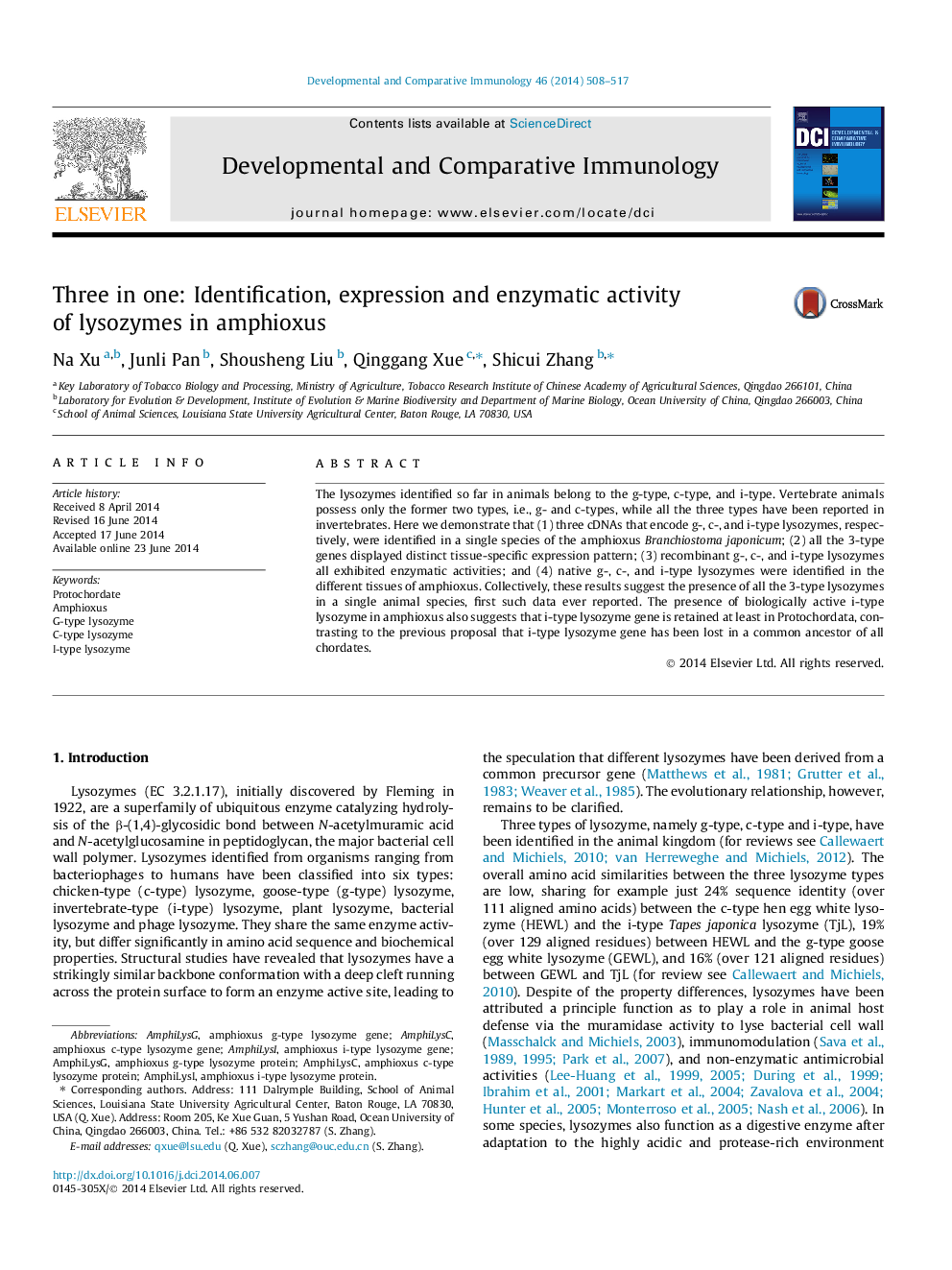| Article ID | Journal | Published Year | Pages | File Type |
|---|---|---|---|---|
| 2429166 | Developmental & Comparative Immunology | 2014 | 10 Pages |
•Three cDNAs encoding c-, g-, and i-type lysozymes are identified in amphioxus.•All 3-type lysozyme genes show distinct tissue-specific expression pattern.•Recombinant c-, g-, and i-type lysozymes all exhibit enzymatic activities.•Native c-, g-, and i-type lysozymes are detected in amphioxus.
The lysozymes identified so far in animals belong to the g-type, c-type, and i-type. Vertebrate animals possess only the former two types, i.e., g- and c-types, while all the three types have been reported in invertebrates. Here we demonstrate that (1) three cDNAs that encode g-, c-, and i-type lysozymes, respectively, were identified in a single species of the amphioxus Branchiostoma japonicum; (2) all the 3-type genes displayed distinct tissue-specific expression pattern; (3) recombinant g-, c-, and i-type lysozymes all exhibited enzymatic activities; and (4) native g-, c-, and i-type lysozymes were identified in the different tissues of amphioxus. Collectively, these results suggest the presence of all the 3-type lysozymes in a single animal species, first such data ever reported. The presence of biologically active i-type lysozyme in amphioxus also suggests that i-type lysozyme gene is retained at least in Protochordata, contrasting to the previous proposal that i-type lysozyme gene has been lost in a common ancestor of all chordates.
